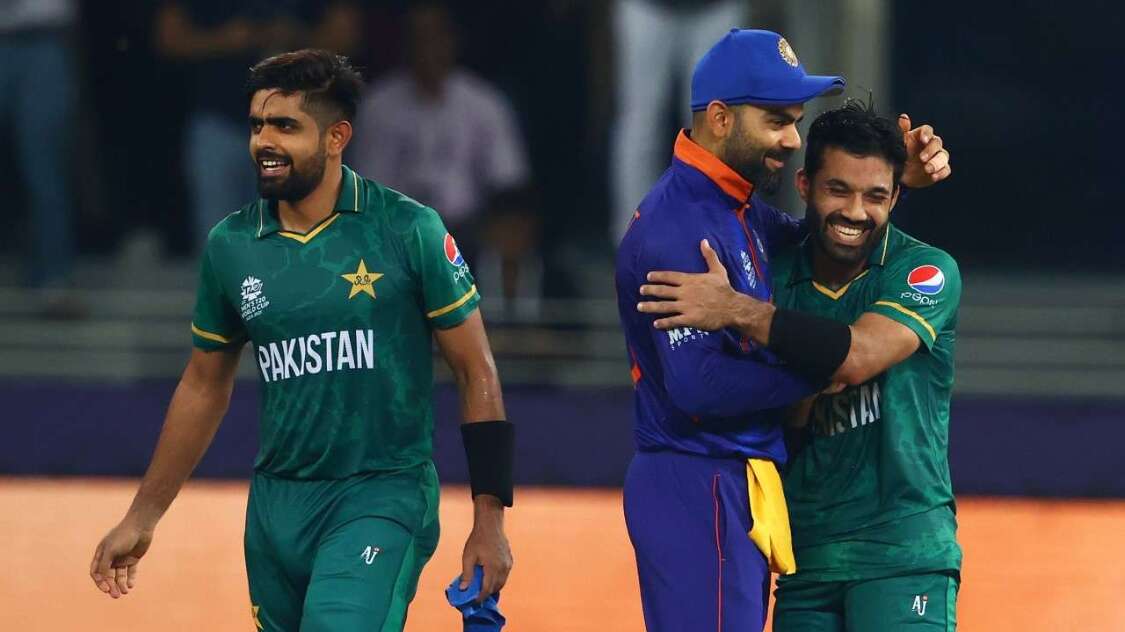Making the 'mauka' count

The Pakistan cricket team seized the opportunity with both hands Sunday to end the perennial drought of victory in ICC World Cup matches against India. India has, almost in a lopsided manner, dominated against Pakistan in ICC World Cup matches — winning 11 of the 13 matches so far, with one being tied. But the Pakistan team has turned the table this time around through their mature resolve and an indomitable team effort — crowned by skipper Babar Azam's masterclass 68 off 52 balls and Rizwan's high-handed 79 off 55 balls. But to top things up, was Shaheen Afridi's strong left arm. The young and nimble bowler pierced through Indian teams' gold standard batting class, impressively claiming the crucial wickets of Rohit Sharma, KL Rahul and Virat Kohli. That's where the half battle was won. The Sunday game has been a wonderful display of capabilities and maturity by the Pakistani side, which was duly acknowledged by the Indian skipper. In fact, India-Pakistan cricket matches have always been a contest of capabilities and spirit. These contests are known the world over for cutting edge competition between the two teams, and never for dominance of one team over the other. There are numerous instances where viewers have been made to hold their breath till the very last moments of the contests. India and Pakistan have played 200 matches across all formats, with India winning 70 and Pakistan 87. Except for the T20 format where Pakistan has won just two of the nine matches played between the two teams, Pakistan has won more matches than India in bilateral contests in both ODI and Test format. Pakistan leads over India in ODI format by winning 73 matches as against India's 55 victories in the overall 132 contests; and winning 12 against India's 9 victories in the overall 59 test contests. It is no surprise then that the chances of victory and defeat for both the teams are a 50-50 chance. It has been partly the luck factor and partly the pressure that may have perhaps kept Pakistan from tasting victory against India in World Cup matches for so long. This time around they have got past both. Also, Pakistan is known as a cricketing side that can upset toughest of the adversaries on their day. Not much before the political tensions between Indian and Pakistan would become too big to affect the cricket contests between the two nations, every India-Pakistan match had been a spectacle to watch. Over the past decades, the beauty of India-Pakistan contest would come through close finishes and shoulder to shoulder fight all throughout. The fiery Shoaib Akhtar would come up with unsurmountable pace and Tendulkar would just steer it towards the third-man fence. The era came to be characterized by Ganguly's zeal and Inzamam-ul-Haq's consistency. The games were more frequent and cricket prevailed over politics. Those days are still remembered for individual grit and performances that have taken the form of anecdotal references. National politics, though a factor, was pushed somewhere behind the curtain. What the Babar Azam-led team did, apart form registering a convincing win, was to win over hearts through a very sober and solemn celebration. Azam simply mellowed down his indomitable innings with gracious prayer to the Almighty. The two skippers also have had a friendly conversation after the match. These are positive signs that once again reinforce the belief that sports always offers a unifying spirit. It has the effect of bridging the divides. The mature gesture of Pakistani team was duly reciprocated by Indian camp. Though the Pakistan team's victory is almost one-sided, it offers an indication that we may anticipate the same breathtaking finishes in India-Pakistan duels in ICC World Cup matches as we have been accustomed to in other matches. As for Indian team, there is a long tournament ahead. And Indian teams' bouncing back capabilities could be the last thing to be doubted in the cricketing world. All eyes are now on India-New Zealand match on October 31 as Indian team braces up for another tight contest. Another important factor that needs to be considered is that Asian teams, apart from India reigning and Bangladesh team emerging as strong contender, appear to have lost some sheen over the past decades. The improved performance of once very strong teams like Sri Lanka and Pakistan will ensure more colorful contest in the ongoing World Cup and times ahead.



